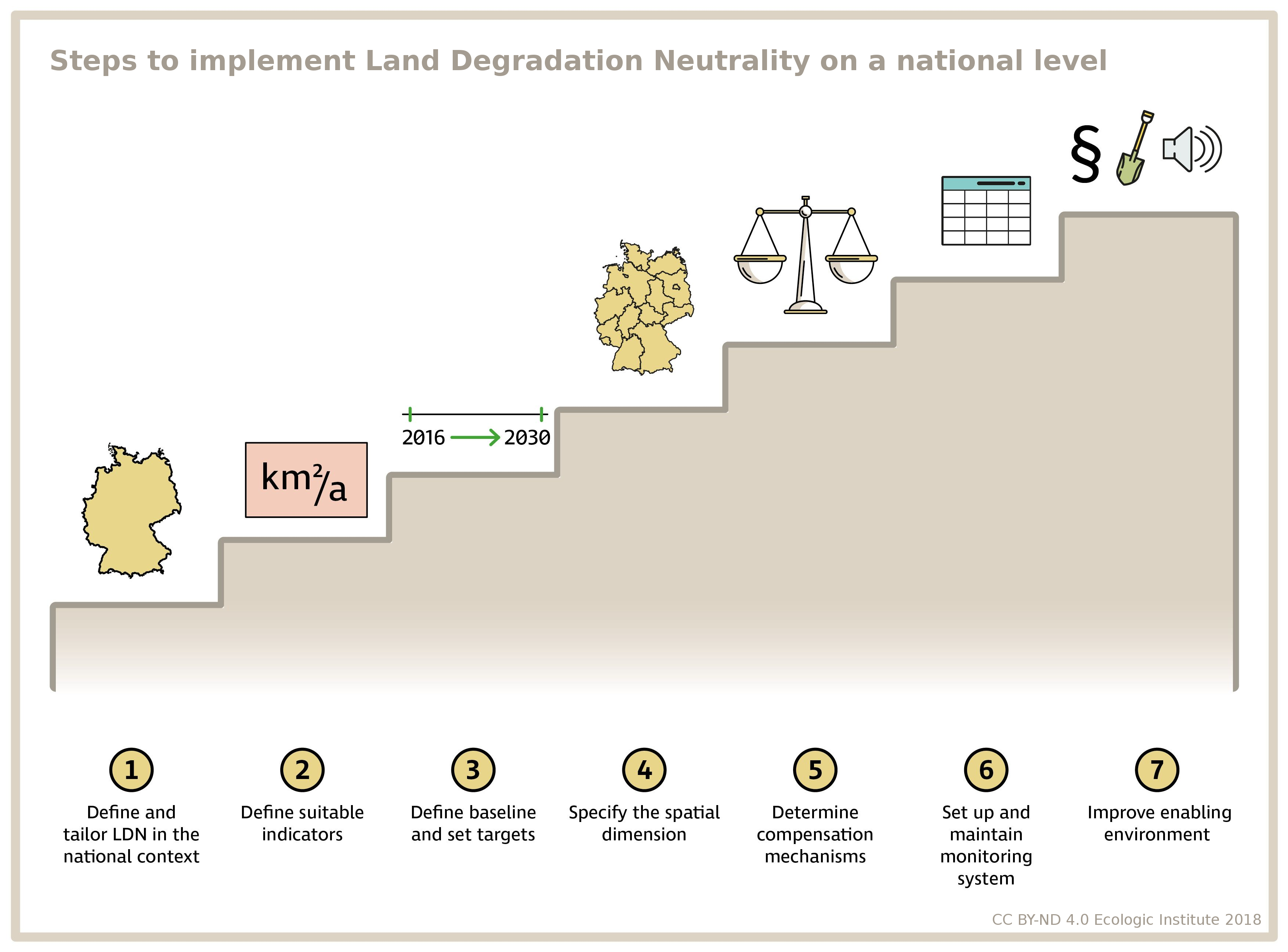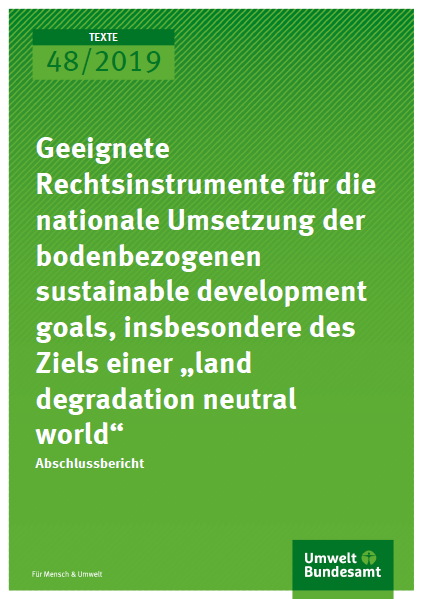
Achieving Land Degradation Neutrality in Germany
Implementation process and design of a land use change based indicator
- Publication
- Citation
Wunder, Stephanie and Ralph Bodle (2019): Achieving land degradation neutrality in Germany: Implementation process and design of a land use change based indicator. Published in: Environmental Science & Policy 92 (2019), pp. 46-55. ISSN 1462-9011, https://doi.org/10.1016/j.envsci.2018.09.022.
Following the adoption of the UN Sustainable Development Goals (SDGs) in September 2015, Germany has committed to implement the SDGs with high ambition. This includes a commitment to implement SDG 15.3, which aims to achieve "Land Degradation Neutrality" (LDN) by 2030. In order to do so, it was decided that the National Sustainable Development Strategy – the key strategic framework in Germany for achieving the SDGs – should include an indicator for soil quality and land degradation in a coming revision.
To explore how such an indicator can be defined and to analyse how the overall soil related SDGs can be implemented in Germany, the German Environment Agency and the German Federal Environment Ministry commissioned the research project "Implementing the Sustainable Development Goals on Soils in Germany". It ran from October 2015 to December 2017 and was carried out by Ecologic Institute.
This article summarizes the key insights of this project containing two major aspects: First, it presents a conceptual framework for the implementation of LDN at national level including a proposal for necessary steps and guiding questions. Second, it develops a concept for a new indicator to monitor LDN, which uses land use categories as a possible proxy indicator to differentiate likely impacts on soil. Each land use category is assigned a certain soil value that represents the exposure to soil threats. The concept builds on and extends the hemeroby (naturalness) concept with regard to soil. We also identify key differences between the proposed indicator concept and the approach proposed by the Scientific Conceptual Framework (Science Policy Interface of the UN Convention to Combat Desertification).
Finally, we discuss the current barriers hindering progress towards a more ambitious policy on soil protection and land take in Germany and the opportunities and needs to improve the current legal framework and its implementation.







